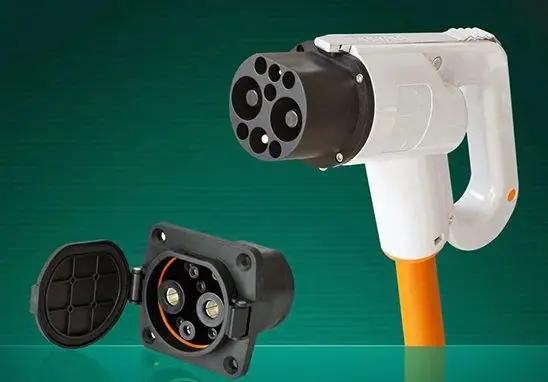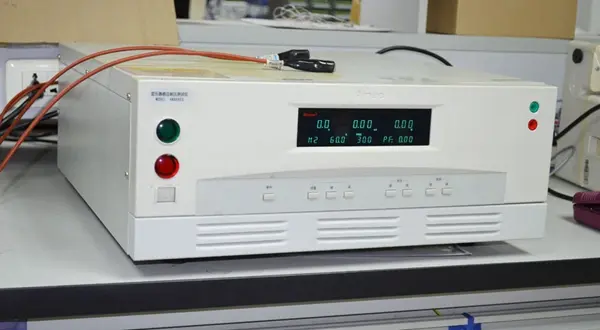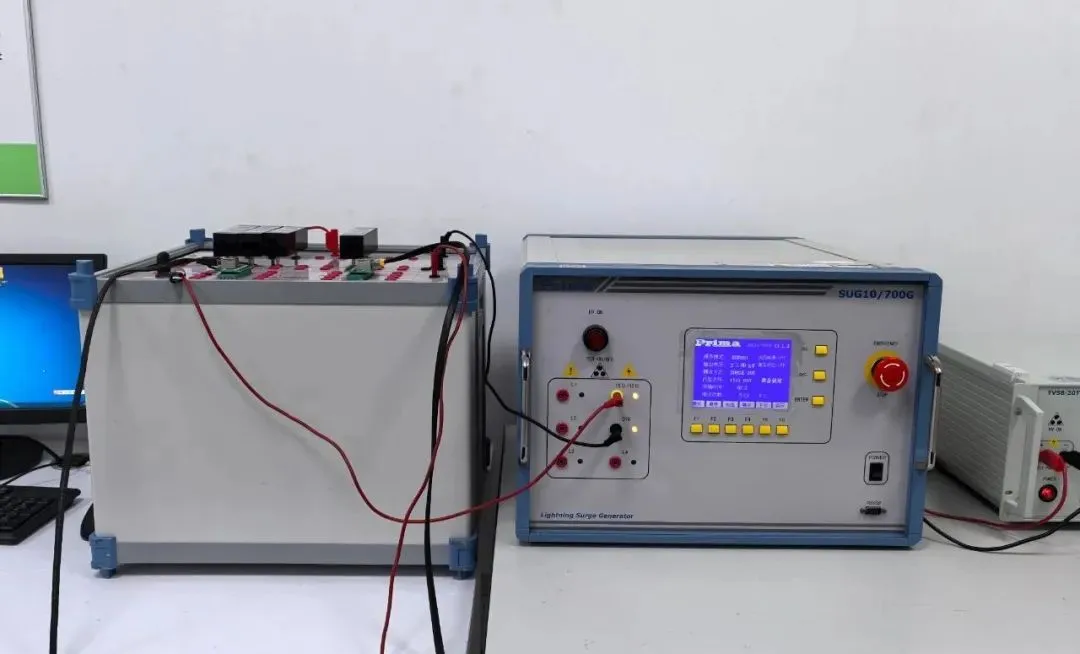
New Energy Vehicle Charging Gun Testing
With the rapid adoption of new energy vehicles, the charging gun, serving as a critical component connecting vehicles to charging stations, plays a pivotal role in ensuring safe charging. To meet the demands of everyday use, rigorous testing and certification of charging guns are essential. China’s JJR Laboratory, a professional third-party testing organization, has introduced a fULl suite of testing equipment, enabling comprehensive testing and certification services for charging guns in accordance with various domestic and international standards.

Core Testing Equipment for Charging Guns
- Vehicle Overrun Testing Machine
- Charging Interface Cable Flexing Tester
- Mechanical Strength Testing Equipment for Charging Guns
- Plug-and-Unplug Lifecycle Tester
- Resistive and Inductive Load Bank
- High-Power Power Supply System
Charging Gun Testing Standards
China’s JJR Laboratory conducts charging gun testing based on multiple standards to ensure compliance with all performance requirements. Common testing standards include:
- IEC 62196-1:2022: Plugs, socket-outlets, vehicle connectors, and vehicle inlets – Conductive charging of electric vehicles – Part 1: General requirements.
- IEC 61851-1:2017: Electric vehicle conductive charging system – Part 1: General requirements.
- ul 2251:2020: Plugs, receptacles, and connectors for electric vehicles.
- GB/T 20234.1-2023: Connection devices for conductive charging of electric vehicles – Part 1: General requirements.
- GB/T 20234.2-2023: Connection devices for conductive charging of electric vehicles – Part 2: AC charging interface.
- GB/T 20234.3-2023: Connection devices for conductive charging of electric vehicles – Part 3: DC charging interface.
- GB/T 18487.1-2022: Electric vehicle conductive charging system – Part 1: General requirements.
Leveraging advanced testing equipment and a professional technical team, JJR Laboratory provides comprehensive testing services for charging guns’ performance and reliability metrics in line with standards such as IEC 62196-1:2022.
Through rigorous testing, JJR ensures charging guns meet mechanical, electrical, and environmental performance standards, safeguarding the safety of electric vehicle charging. Whether during product design and development or pre-market quality verification, JJR Laboratory offers all-encompassing technical support to help enterprises enhance product quality and maintain market competitiveness.
Charging Gun Testing Categories
1. General Requirements
- Appearance and Structural Requirements: Ensures the charging gun’s appearance meets standards, has no defects, and features robust construction.
- Dimensional and Type Requirements for Charging Interfaces: Verifies that interface dimensions comply with standards to ensure compatibility with different charging equipment.
- Screws, Current-Carrying Components, and Connection Requirements: Ensures the firmness of screws and connections for safe current transmission.
- Terminal and End Requirements: Evaluates the quality of terminals and ends to ensure stable electrical connections.
- Electric Shock Protection Requirements: Tests anti-electric shock measures to ensure user safety during operation.
2. Electrical Performance
- Grounding Measures: Evaluates the grounding system to ensure safe electrical grounding.
- Breaking Capacity: Assesses the gun’s ability to break the circuit under overload conditions.
- Surface Temperature: Monitors surface temperatures during operation to prevent overheating risks.
- Temperature Monitoring Requirements: Tests the system's ability to detect and respond to temperature anomalies.
- Insulation Resistance and Dielectric Strength: Ensures electrical safety under various environmental conditions.
3. Durability Testing
- Locking Mechanism Durability: Evaluates the durability of locking mechanisms for stable performance over prolonged use.
- Normal Operation Durability (Lifespan): Simulates usage scenarios to test durability after repeated plug-and-unplug cycles.
- Contact Durability: Assesses the durability of connectors to ensure consistent contact during frequent use.
- Switch Component Durability: Tests the longevity and reliability of internal switch components.
4. Environmental Reliability
- High and Low Temperature Resistance: Simulates extreme temperature conditions to test resilience.
- Humidity Resistance: Evaluates performance under high-humidity conditions.
- Temperature Shock: Assesses stability under rapid temperature changes.
- IP Protection Rating: Tests dust and water resistance for reliability in harsh environments.
5. Mechanical Reliability
- Vehicle Overrun Test: Simulates the mechanical strength of the charging gun under vehicle pressure.
- Cable Connection Strength (Tension and Torsion Test): Evaluates connection strength under stress.
- Mechanical Strength (Pendulum Impact, Flexing, etc.): Ensures impact and bending resistance during usage.
- Vibration/Shock Testing: Simulates vibrations and shocks during transportation and use.
- Offset Operation Test: Assesses mechanical performance under improper operations.
6. Material Testing
- Aging Resistance of Rubber and Thermoplastic Materials: Tests material durability over time to ensure longevity.
- Corrosion and Rust Resistance: Assesses the outer shell’s ability to resist corrosion and rust in harsh environments.
- Heat, Flame, and Tracking Resistance: Tests material performance under extreme conditions.
- Restricted Substances Testing (ELV, RoHS, SOC, etc.): Ensures materials are free of hazardous substances and meet environmental standards.
Why Choose JJR Laboratory?
1. Brand Trust: Established in 1998, recognized by CNAS and CMA, and designated as a National SME Public Technology Service Platform.
2. Comprehensive Certifications: Recognized by multiple domestic and international organizations with widely trusted testing reports.
3. International Standards: Operates in compliance with ISO/IEC 17025 and over 10 international and domestic standards.
4. Service Excellence: Provides efficient, one-stop testing and certification services, trusted by numerous renowned domestic and international enterprises.
Email:hello@jjrlab.com
Write your message here and send it to us
 Global Certification Guide for Lithium Batteries
Global Certification Guide for Lithium Batteries
 Compliance of Amazon 18650 Lithium Battery Product
Compliance of Amazon 18650 Lithium Battery Product
 What is CE Certification and EU Authorized Represe
What is CE Certification and EU Authorized Represe
 What Are the Lithium Battery Safety Tests?
What Are the Lithium Battery Safety Tests?
 What is the EN 61326-2-3 Standard?
What is the EN 61326-2-3 Standard?
 Why Do Smart Sockets Need IEC 60884 Certification?
Why Do Smart Sockets Need IEC 60884 Certification?
 Why Retest the Device if the 5G Module Already Has
Why Retest the Device if the 5G Module Already Has
 Overview of IEC 62087 Test Standard
Overview of IEC 62087 Test Standard
Leave us a message
24-hour online customer service at any time to respond, so that you worry!




